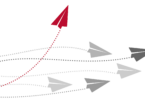Athens, Ga. – Unlike undergraduates who plan to go into the teaching profession, graduate students often don’t have the same opportunities for formal training and experience before they assume faculty positions in higher education. To better prepare doctoral and master’s candidates for the rigors of teaching at the college level, the Graduate School has established the Interdisciplinary Certificate in University Teaching.
The certificate, approved last fall to be fully implemented summer semester, enables graduate students, regardless of their discipline, to work with academic departments and administrative units that support teaching and learning. Students in the program enroll in courses related to teaching strategies, methods of learning and assessment, technology to support teaching and professional development for the academy. They also must complete classroom or laboratory teaching assistantships at the university. The course work and teaching assignments, along with submission of a teaching project and portfolio, aim to improve the effectiveness – and confidence – of graduate students as they enter the professoriat.
“This program is definitely filling a need,” said Jan Sandor, who, as the new director of special projects at the Graduate School, is overseeing the program. “As the former graduate admissions director, I know firsthand that by establishing this certificate, we are strengthening the array of programs we offer to prospective students, providing new tools for professional development and making UGA more attractive for graduate study.”
Maureen Grasso, dean of the Graduate School, emphasizes the difference this certificate will make in students’ understanding of an academic career. “By being fully prepared for faculty responsibilities, no matter what their discipline, our students become much more marketable to potential employers, and better educators to future students,” she said.
In addition to preparing graduate students for their future careers as professors, the certificate provides tangible proof of their mastery of the skills needed to succeed in such positions.
Paul Quick, teaching assistant program coordinator at UGA’s Center for Teaching and Learning, also views the new certificate as something that will benefit graduate students as they enter the academic job market.
“Besides providing additional formal training in pedagogy and the scholarship of teaching, the certificate will be an attractive addition to anyone’s C.V. (curriculum vitae) as he or she makes the transition from graduate student to faculty member,” he said.
This program is just one of several interdisciplinary initiatives under the leadership of the Graduate School and follows a nationwide trend at universities to provide students with the support of a central organization when pursuing specialties that cross traditional academic boundaries. Last fall, the graduate toxicology program became housed under the Graduate School, emphasizing its intercollegiate and multidisciplinary nature.
“Students need a central organization to help them navigate the increasingly complex programs of study,” said Sandor, “The Graduate School can ensure the success of the students and the programs by serving as the umbrella unit on campus to unite disciplines and collaborate with other units.”
For more information about the Interdisciplinary Graduate Certificate in University Teaching, the Interdisciplinary Toxicology Program or any of the other degrees or certificates offered by the University of Georgia Graduate School, call 706/542-1739 or visit www.gradsch.uga.edu.
##







